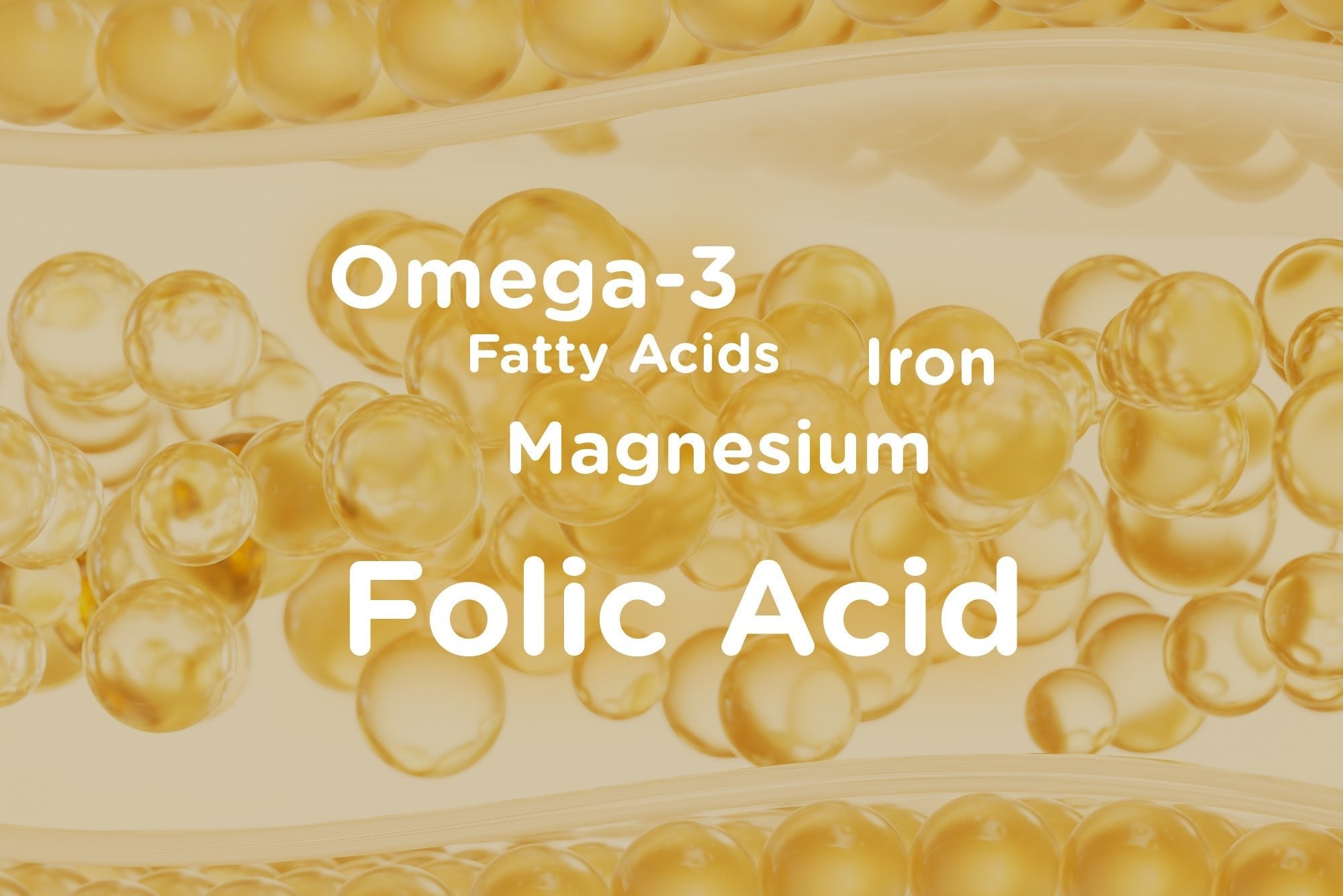During the preconception period, maternal health and diet profoundly impact foetal and infant growth, birth outcomes, and even long-term health. For instance, maternal obesity at conception can lead to offspring with a higher risk of obesity, cardiovascular issues, and metabolic diseases later in life. This emphasises the critical role of preconception health in preventing adverse health outcomes and promoting lifelong well-being.
Are you considering starting a family or planning for pregnancy? Here's a comprehensive guide to the important nutrients you should focus on when preparing for pregnancy:
Folic Acid
Folic acid is perhaps one of the most crucial nutrients for preconception health. It plays a vital role in preventing neural tube defects (NTDs) in the developing baby's brain and spinal cord. It also benefits maternal health by reducing the risk of anaemia and supporting overall well-being during pregnancy.
The recommended daily intake of folic acid for women of childbearing age is 400 micrograms (mcg) per day. However, during the preconception period and early pregnancy, this requirement increases to 500 mcg per day to ensure sufficient levels for the developing baby's needs.
Omega-3 Fatty Acids
Omega-3s, particularly DHA (docosahexaenoic acid), are essential for the baby's brain and eye development. It is a key component of brain tissue and plays a crucial role in the development of the baby's brain and nervous system during pregnancy. Adequate DHA intake is associated with improved cognitive function as well as a healthy development of the visual system.
As Omega-3 fatty acids also have anti-inflammatory effects, it can benefit maternal health by reducing inflammation and supporting overall well-being.
Minerals like Iron and Magnesium
While folic acid remains the top priority mineral during preconception for its role in preventing neural tube defects, iron and magnesium are also essential for overall health and well-being during this crucial period.
Iron is essential for preventing anaemia, which can affect both maternal and foetal health. It also supports oxygen transport in the blood. Adequate iron intake before pregnancy ensures optimal iron stores for the increased blood volume during pregnancy.
On the other hand, magnesium is crucial for muscle and nerve function, including the relaxation of muscles and proper nerve signalling. Adequate magnesium intake supports overall health and may help reduce the risk of complications such as preeclampsia during pregnancy.
Prebiotics and Probiotics
During preconception, when optimal nutrition is critical for both the mother and potential baby, a well-functioning gut ensures that essential nutrients such as vitamins, minerals, and antioxidants are absorbed efficiently.
More importantly, gut health influences hormone regulation, including reproductive hormones such as oestrogen and progesterone. Balanced hormone levels are vital for menstrual cycle regularity, ovulation, and overall fertility.
By focusing on these essential nutrients and maintaining a balanced diet, you'll be better equipped to support a healthy pregnancy and give your baby the best start in life. Consult with a healthcare provider or nutritionist for personalised advice based on your individual needs and health status.





